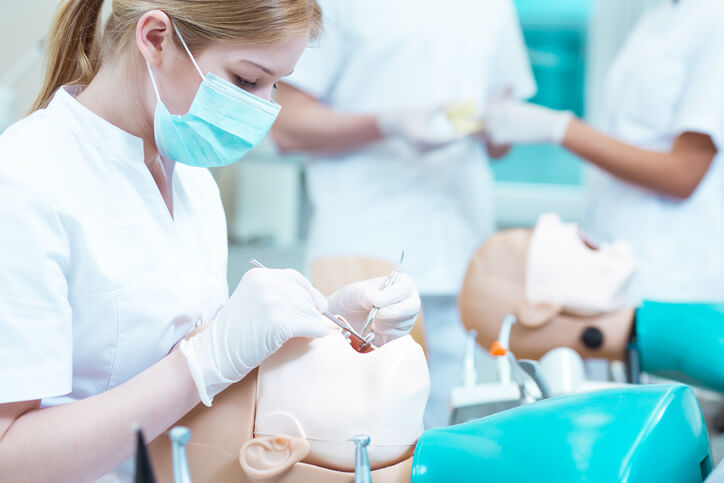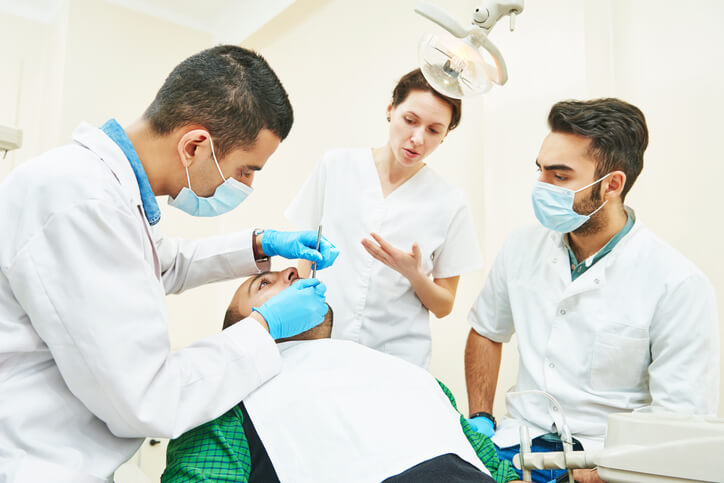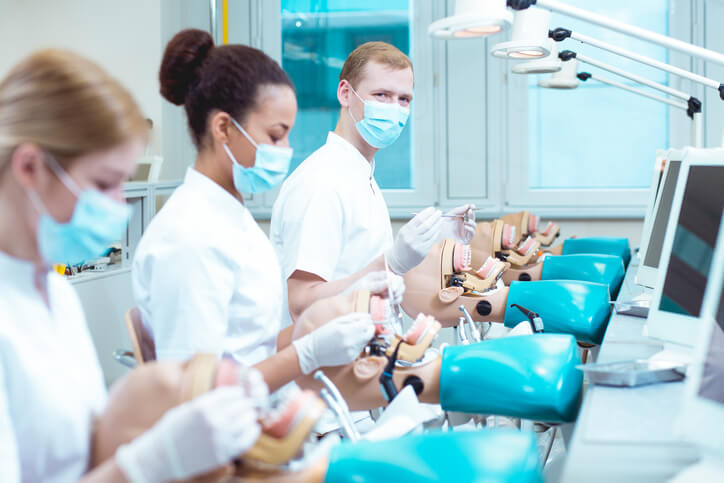
In the world of dental assisting, theory provides the foundation, but it’s hands-on learning that truly prepares you for success. Why hands-on learning is important. If you’re training to support patients and dental professionals, you’ll need more than textbook knowledge. You’ll need experience, confidence, and practical skills. That’s why hands-on training is central to earning your dental assistant diploma.
In this blog, we’ll explore why hands-on learning is important for aspiring dental assistants and how it bridges the gap between classroom learning and real-world practice.
1. Learn Dental Skills Through Practice, Not Just Theory
Dental assisting is a highly tactile profession. You’re not just learning anatomy and dental terminology; you’re taking X-rays, sterilizing instruments, assisting with procedures, and helping manage patient care.
While classroom lectures help you understand concepts, intra oral dental assistant training allows you to apply that knowledge directly. By handling instruments, working with simulators, and assisting in clinical settings, you gain confidence and precision that no textbook can provide.
2. Prepare for Real-World Scenarios
Imagine the next appointment in your dental office and assisting with a root canal. Walking into the procedure with prior practical experience would ensure your confidence and expertise throughout the procedure. This ensures you are ready for the workplace.
Why is hands-on experience important to learning? Because it gives you a safe space to make mistakes, ask questions, and master your techniques. You’re able to learn how to respond to patient anxiety, follow infection control protocols, and adapt to the pace of a busy practice.
Hands-on training helps you transition from student to professional smoothly. At CADH, simulated environments and clinical placements ensure you’ve practiced enough before stepping into a real-world setting.

3. Build Your Professional Confidence
Students often ask: “Why is hands-on learning important if I’m already scoring well on written tests?” The answer is simple: exams don’t prepare you for nervous patients, malfunctioning equipment, or coordinating with a dental team under pressure.
Hands-on training builds the self-assurance needed to perform dental procedures and support your team effectively. It allows you to hone communication, attention to detail, and time management, all crucial for dental assistants.
By the time you graduate, you’ll feel ready to tackle the day-to-day realities of the job, not just pass an exam.
4. Impress Employers With Job-Ready Skills
Employers today are looking for graduates who can hit the ground running. They want dental assistants who know their way around a dental chair, can manage sterilization protocols, and can assist with procedures confidently from day one.
Training hands-on makes your resume stronger and your interview answers more compelling. You’ll have real experiences to talk about, something that sets you apart from candidates with minimal practical exposure.
You’ll also better understand the full dental assistant responsibilities, including how to communicate with dentists, support hygienists, and ensure patients feel at ease.

5. Make the Most of Your Training Investment
Dental assistant school is a commitment of time, energy, and finances. Hands-on learning ensures you get the most out of your education. Instead of graduating with theoretical knowledge alone, you’ll leave with real skills and experience.
Plus, with ongoing exposure to live demonstrations, lab work, and clinical rotations, you’ll discover which parts of the job you enjoy most, which helps shape your career path moving forward.
Start Your Career With Confidence
At CADH, we believe that training must be immersive to be effective. Our dental assistant diploma program emphasizes hands-on learning through modern facilities, experienced faculty, and clinical placements.
If you’re serious about becoming a skilled dental assistant who’s ready to make an impact, hands-on training isn’t just important, it’s essential.
Are you looking for a comprehensive Dental Assistant Diploma program?
Contact CADH for more information.

